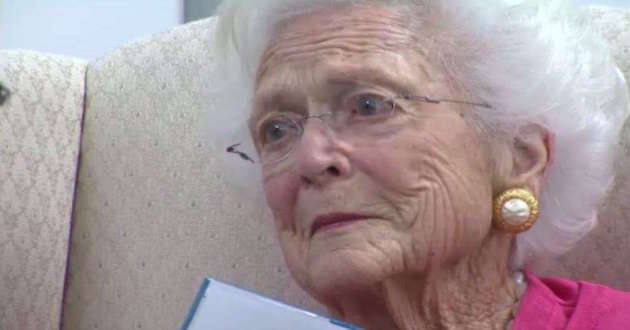Barbara Bush chose “comfort care” as end of life neared

Former first lady Barbara Bush introduced many Americans to a new phrase: comfort care, one of a number of end-of-life choices.
Not everyone chooses to fight their health issues to the bitter end. Some, like Barbara Bush, opt for what’s known as comfort care instead. Mrs. Bush passed away this week in Houston at the age of 92.
Also known as palliative care or hospice, comfort care is when a patient decides to end aggressive, intensive medical treatment. However, it does not mean the patient stops all medical care. As the name suggests, the patient receives treatments that make them as comfortable as possible and allow them to retain their dignity.
Dr. Crystal Moore, a Chesapeake, Virginia pathologist, says choosing comfort care is a personal decision. She said her mother, a great woman of faith, chose it because she was anxious to be with the Lord.
On the other hand, she said her sister, who also was secure in her eternal destination, was a young mother dying of cancer and chose to hope for a miracle, although she “suffered greatly” at the end of her life.
“We can’t choose when we’ll die. God has numbered our days. But we can choose how we will approach that day,” Dr. Moore said. “If we believe we’re going to see God and see all of our loved ones again, but there are also a lot of other issues that pull on us and make us want to stay and continue to work for the Lord.”
Comfort care is an end-of-life choice by people with a variety of illnesses, such as cancer, Alzheimer’s and, as was the case with Barbara Bush, congestive heart failure and COPD, a lung disease.
Barbara Bush spoke openly about her Christian faith. “I have no fear of death,” she said in 2013, “because I know that there is a great God, and I’m not worried.”
Likewise, after her death, her husband, former President George H.W. Bush, said “We have faith she is in heaven, and we know life will go on, as she would have it, so cross the Bushes off your worry list.”
Speaking about the process of comfort care, Dr. Moore said, “It is both physical care and emotional care and spiritual care for the person who is going through the death process and for their loved ones.”
Comfort care is when a patient instructs their doctor to go against their urge to extend life at all costs. Those costs can be quite high. In fact, a reported 25 percent of health expenditures among people over age 65 usually occur in the last year of life, according to the Kaiser Family Foundation.
The difference between comfort care and hospice care is that hospice is for people who are not expected to live longer than six months and typically involves fewer medical treatments, while people receiving comfort care can live longer.
Dr. Moore says now is the time to discuss end-of-life issues with our families and make our wishes known. It’s not an easy conversation but one that might minimize a lot of problems down the road, she said.
–Lori Johnston, CBN News







